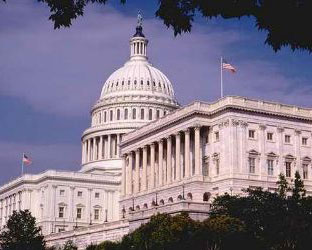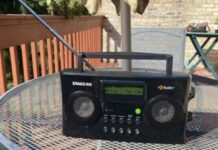Congress is marking World Radio Day in a particularly meaningful way: a bipartisan group of 114 US House members has reintroduced the Local Radio Freedom Act, a non-binding resolution opposing the imposition of new performance fees, royalties, or taxes on local radio stations.
The LRFA, led by Reps. Steve Womack (R-Ark.) and Kathy Castor (D-Fla.), continues efforts in previous congressional sessions to prevent additional financial burdens on broadcasters. The last iteration of the Local Radio Freedom Act received overwhelming support from over 250 bipartisan members of Congress, dwarfing that of the music industry lobby-supported American Music Fairness Act (AMFA).
Womack remarked, “Local radio is integral to my life, as it is for many of those in Arkansas and across America. It’s the heartbeat for communities, allowing free access to local sports, news, and entertainment. But most importantly, it’s a lifeline when disaster strikes. The Local Radio Freedom Act opposes charges that could threaten the viability of these local businesses that many people rely on.”
Castor added, “The radio is a top, trusted choice for receiving local news, weather alerts, traffic updates, community opportunities, and so much more. It is particularly important for my home state of Florida, where it provides critical information to residents and visitors during storms and after times of crisis via the Florida Public Radio Emergency Network. That is why I am a proud sponsor of the Local Radio Freedom Act, a resolution that reaffirms Congress’s support for local radio stations and opposes new fees or taxes on local, free broadcast radio.”
NAB President and CEO Curtis LeGeyt praised the initiative, stating, “NAB is grateful to Reps. Womack and Castor for leading the effort to ensure local radio remains a viable source of trusted information in communities across the country. Americans depend on the local news, traffic updates, severe weather alerts, entertainment, and sports they can freely access through local stations. Imposing a new performance fee on top of the hundreds of millions that local stations already pay in copyright and streaming fees would severely hinder our ability to provide these free and essential services to our listeners.”
The LRFA is a direct retort to the AMFA, which was reintroduced in the Senate earlier this month. AMFA, which has failed to gain traction in two previous Congresses, would require over-the-air broadcasters to pay royalties on par with streaming services, which do not provide a free, public service like AM/FM.
If a broadcast performance royalty were implemented, fees for broadcasters could be substantial. A decade ago, the Congressional Budget Office warned of high costs, a concern reinforced by current royalty structures for digital platforms.
As discussed by broadcast attorney David Oxenford of Wilkinson Barker Knauer in a recent blog post, while webcasting royalties are calculated per performance, a broadcast royalty would likely be based on a percentage of revenue. Comparisons can be made to Sirius XM, which pays 15.5% of revenue in sound recording royalties. Given that satellite radio rates factor in non-music content, a pure music station could face even higher percentages.




